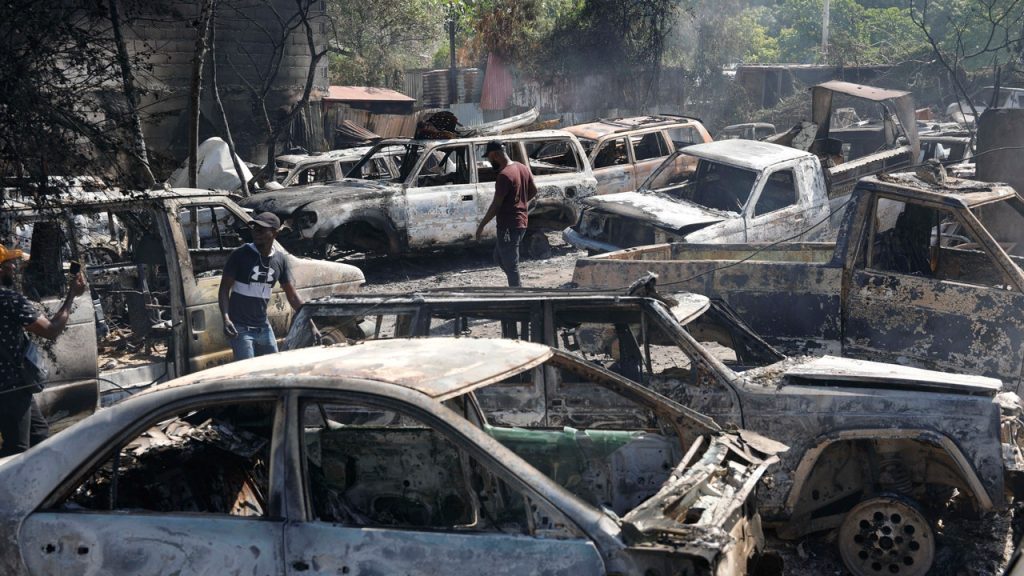A U.N. report released on Tuesday revealed that over 53,000 people have fled Port-au-Prince, Haiti, in less than three weeks, with more than 60% heading to the nation’s rural southern region. This mass exodus is largely driven by residents escaping the escalating gang violence in the capital, where gangs have launched attacks on government institutions, burned police stations, and released thousands of inmates from prisons. The violence has resulted in over 1,500 reported deaths and 17,000 people left homeless. The situation has prompted a significant strain on the host communities in the southern region, which lack sufficient infrastructure and resources to accommodate the influx of refugees.
The southern region of Haiti already hosts over 116,000 individuals who previously fled Port-au-Prince, adding to the challenges faced by the communities in dealing with the ongoing crisis. The situation has left many residents fearful for their safety, with reports of stray bullets hitting homes and roadblocks preventing safe passage out of the capital. Despite the risks associated with traveling through gang-controlled territory, more than 90% of those leaving Port-au-Prince have opted to take buses, exposing themselves to the dangers of gang violence and escalating conflicts.
The escalating violence in Haiti has forced the Prime Minister, Ariel Henry, to announce his resignation once a transitional presidential council is established. However, the formation of the council is still pending, leaving the country in a state of political uncertainty. The lack of a stable government has fueled concerns among residents, many of whom are seeking refuge from the chaos by fleeing the capital. Nevertheless, some individuals like Gary Dorval, 29, are determined to remain in Port-au-Prince until a new government is installed, hoping to contribute to the much-needed change in the country.
The ongoing crisis in Haiti has prompted significant concerns among humanitarian organizations, with the U.N. calling attention to the urgent need for support in dealing with the repercussions of the mass migration from Port-au-Prince. The situation has highlighted the vulnerability of displaced individuals, many of whom are living in overcrowded and unsanitary conditions in makeshift shelters across the capital. Efforts are being made to address the humanitarian needs of the refugees and provide essential support to the host communities in the southern region, but more assistance is required to alleviate the strain on resources and infrastructure.
As the situation in Haiti continues to worsen, there is a growing sense of urgency to address the root causes of the crisis and restore stability to the country. The mass exodus from Port-au-Prince underscores the severe impact of gang violence and political instability on the lives of Haitian residents, who are left with little choice but to seek safety elsewhere. Despite the challenges faced by those fleeing the capital, there are also individuals like Marjorie Michelle-Jean, who are determined to reunite with their families and seek refuge from the violence that plagues their homeland. The road to recovery for Haiti will require sustained efforts from the international community to address the underlying issues and create a more secure and prosperous future for its citizens.


